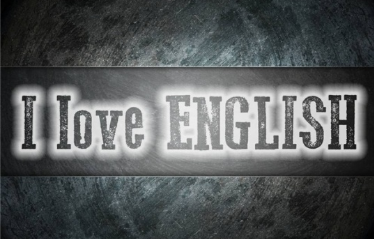虚拟语气学习方法,高中英语虚拟语气学习方法一

Ⅰ 动词的语气
语气有三种:陈述语气,祈使语气和虚拟语气.语气表示说话人持有的态度或看法.
Ⅱ 相关知识点精讲
1.虚拟语气在if 条件句中的用法
⑴ 辨别if 引导真实条件句和if引导的虚拟条件句的区别
If he has time, he will go with us.= Probably he has time and will go with us.
If he had time, he would go with us.=But in fact he has no time.
⑵ 虚拟条件句中主句和从句的谓与动词构成形式如下表:
if条件句中的谓与动词
主句的谓与动词
与现在的事实相反
1. 行为动词用did 形式
2. be动词用were
should / would /could might + 动词原形
与过去的事实相反
had + done
should / would /could might + have done
与将来的事实相反
1. 行为动词用did ;
be动词用were
2. should + 动词原形
3. were to + 动词原形
should / would /could might + 动词原形
⑶ 混合时间的虚拟语气
如果条件句中的动作和主句的动作不是同时发生,主句和从句的谓语动词的形式应分别根据各自所表示的时间加以调整。
1) If I had received the passport yesterday, I would start today.
2) If he had telephoned me last night, I would see him now.
3) If he had followed the doctor’s advice, he would be all right now.
⑷ if虚拟条件句中的到装
如果虚拟语气的条件从句中含有were, had, should可将if省略,把were, had, should放在主语前面。
Had you invited us, we would have come to your party.
Were I you, I would do more practice after class.
Should you meet him, you would greet him.
虚拟语气学习方法,高中英语虚拟语气学习方法二
2.虚拟语气在某些从句中的应用
(1) 动词wish后的宾语从句, 表示不能实现的愿望,表示“但愿...;… 就好了;可惜…悔不该…;
① 与现在事实相反的愿望,从句的谓动词用过去式
I wish that he weren’t so lazy. I wish I were ten years younger.
② 与过去事实相反的愿望:用wish表示对过去事情的遗憾。其句子结构为:had done或would, could, might have done。
I wish that I had gone to the football match last week.
I wish that you had been here yesterday.
③表示将来的愿望时:从句动词would/could/might + 动词原形,常表达不满意,烦恼等。
I wish he would try again.
He wishes that we would visit the old school.
(2)虚拟语气用于as if/though 引起的方式状语从句和表语从句中,其中动词形式与wish宾语从句的形式相同。
They talked as if they had been friends for years. She looks as if she would cry.
(3)用来表示要求、建议、命令、提议等的主语从句、宾语从句和同位语从句中的虚拟形式:should + 动词原形,should可省略
1) 用在表示建议、命令、要求、忠告等动词后,动词形式为(should) +动词原形. 常见动词:一个坚持(insist),两个命令(order, command),三个建议(advise, suggest, propose),四个要求(demand , require, request, desire)。
注意:在suggest后的从句中 A.如果表示建议,用虚拟语气
B.如果表示表明、暗示,用陈述语气
The doctor suggested that I should take the medicine three times a day.
The doctor suggested that my grandmother had caught a bad cold.
在insist后的从句中 A.如果坚持做什么事情,用虚拟语气
B.如果坚持表明,坚持说/解释,用陈述语气
My sister insisted that she should organize the trip.
He insisted that he was right.
2)用在“It is (was)+形容词(或过去分词)/ 名词 + that……”结构中:
常用形容词有:natural, necessary ,important, strange, possible, surprising, amazing,desirable合意的,advisable明智的,crucial关键的,insistent坚持的,essential紧要的,基本的等
常用过去分词有: required ,demanded, suggested 建议, recommended 推荐, commanded命令的,desired想要,ordered命令,proposed提议,requested要求的等
It is essential that he should be prepared for this.
It is requested that Mr. Li give a performance at the party.
3)用于由表示建议、要求、命令请示等含义的名词引导的表语从句和同位语从句中,这类名词常见的有:advice, demand , desire, suggestion, proposal , request , order, requirement, recommendation ,motion提议,resolution决心,decision,idea,pity,preference,shame, surprise,wish,wonder等。
(4) 用在would rather/sooner, had rather, would(just) as soon引导的宾语从句中,表示‘‘宁愿做什么”或对过去做的事的懊悔。
1)表示与现在或将来事实相反用过去时
2)表示与过去事实相反用had done
I’d rather you posted the letter right away.
I would just as soon you had returned the book yesterday.
注意①若某人愿自己做某事,would rather后用动词原形。 I would rather stay at home today.
②would rather...than...中用动词原形。 I would rather stay at home than go out today.
(5) It is (about/high)time + 过去式/should+动词原形 (should 不能省)
It is high time that we put an end to discussion.
(6) 在for fear that …/ in case that …/ lest以免,万一等引导的状语从句,动词用should+动原形,should 可以省略。
She put a blanket over the baby for fear that he should catch cold.
3. 含蓄虚拟条件句
含蓄虚拟条件句是指句中没有明显的虚拟条件句,而是利用其他手段来暗示存在虚拟条件,这类隐含式虚拟条件句往往可以转化成if引导的条件句。常用来表示含蓄虚拟条件的手段有:
(1)介词或介词短语,如:but for, but that, without等
But for the leadership of the Party, we could not be living happily today.
= If there were not the leadership of the party, we could not be living happily today.
Without music, the world would be a dull place.
(2)通过上下文及内在含义,句中往往有but, otherwise等类似转折词。
He worked very hard, otherwise he would have failed.
(3)分词短语
Born ten days earlier, the boy could have seen his father.
(4)情态动词完成时暗示虚拟语气。
should/ could / might/ ought to + have done 表示“过去本应该可以做而实际上却没做”
shouldn’t have done表示“过去不应该做而实际上做了”
needn’t have done 表示“过去没必要做而实际上做了”
